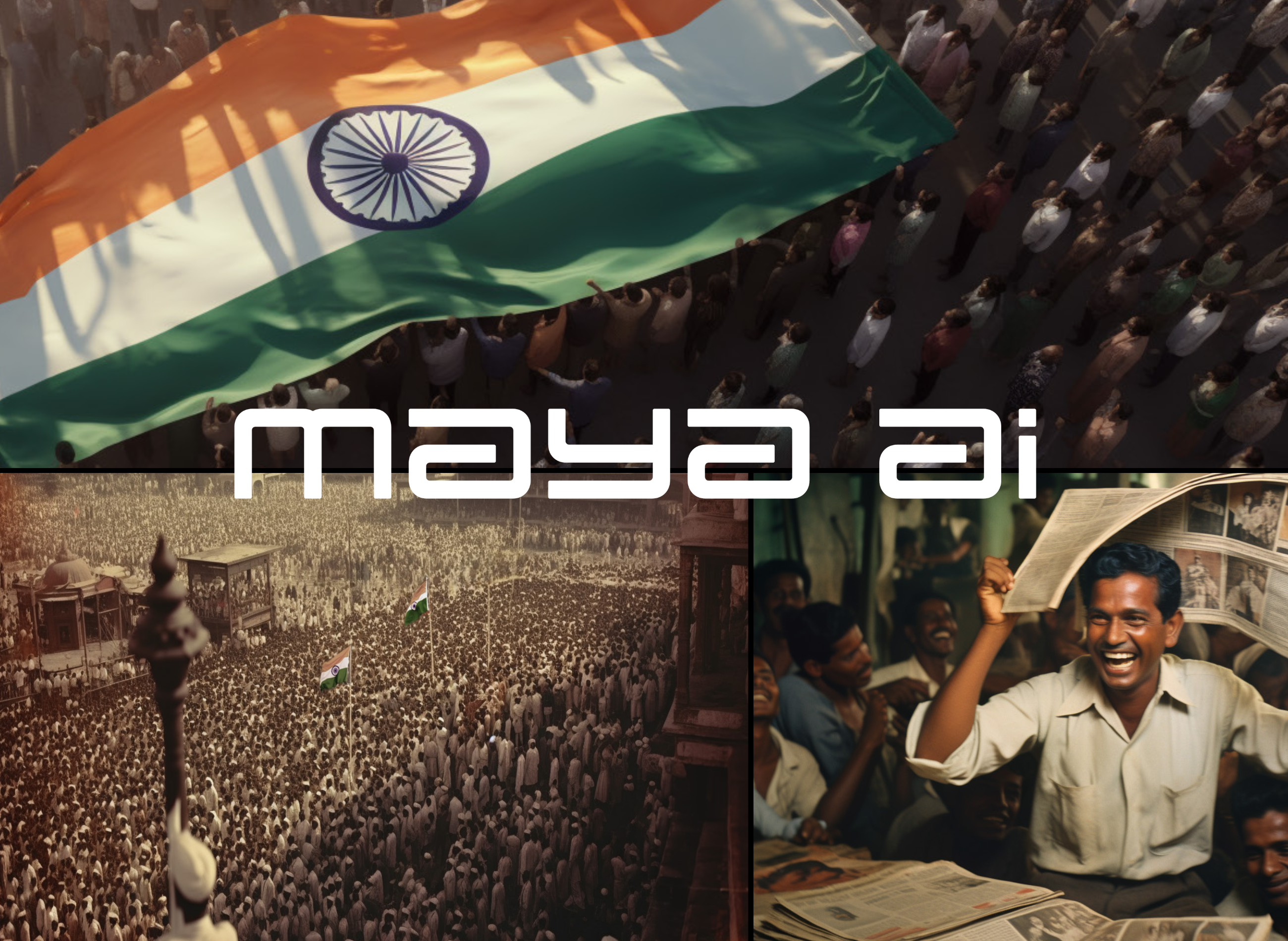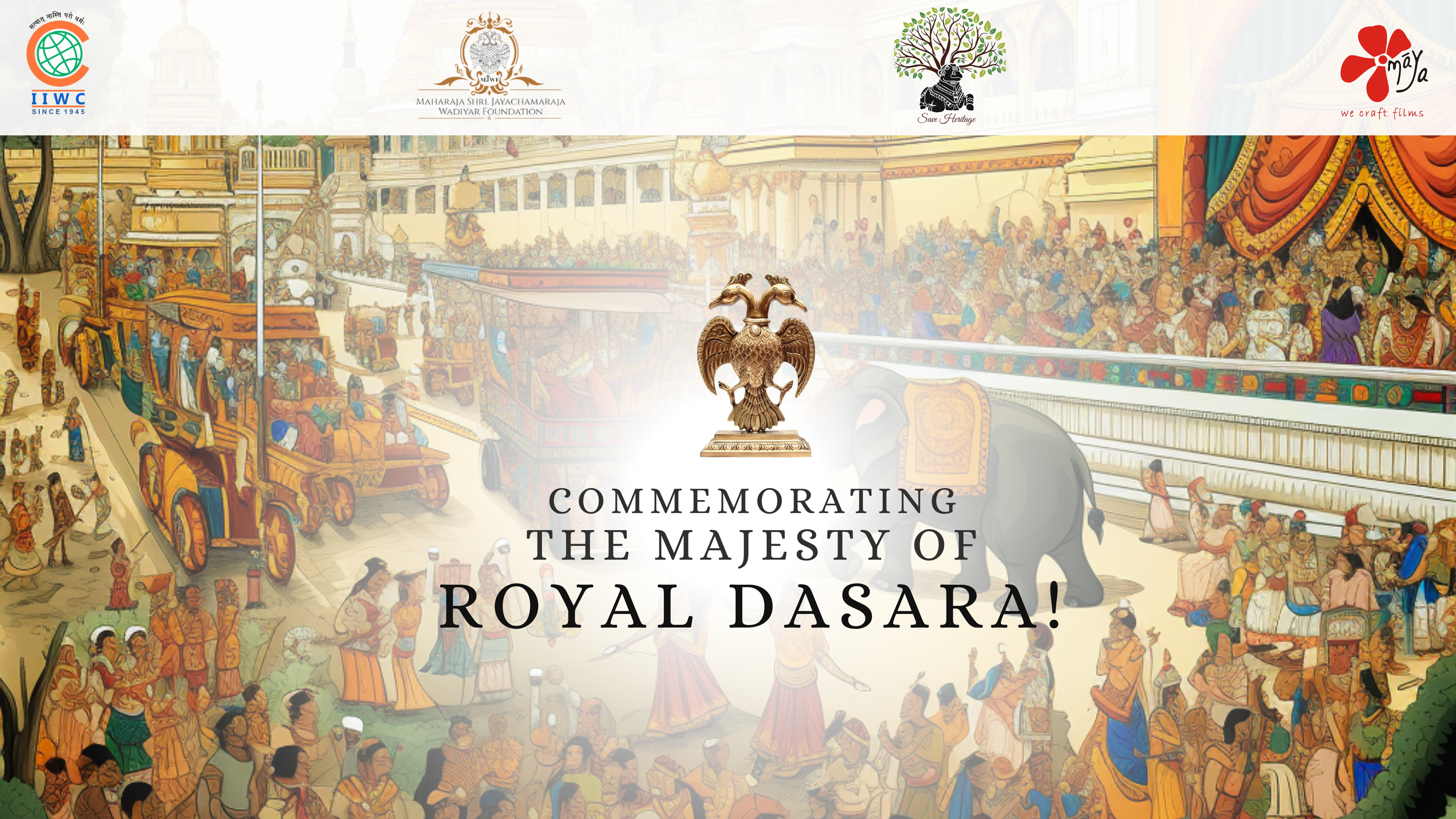MAYA AI: Use of AI in Filmmaking
By Suraksha Poojari | 19 February 2024 The union...


By Suraksha Poojari | 19 February 2024
AI entered the world of filmmaking through a series of experiments, collaborations, and innovations. Filmmakers embraced AI’s capabilities in scriptwriting, previsualization, cinematography, editing, and visual effects, ushering in a new era of creativity and efficiency in the cinematic realm.
The journey of AI in filmmaking began with pioneers like IBM’s Watson and their collaboration with the production team of “Morgan” . Watson analyzed hundreds of horror movie trailers to generate a trailer for the film, showcasing the potential of AI in understanding and replicating genre-specific elements. Filmmakers such as Oscar Sharp and Ross Goodwin, with their short film “Sunspring”, demonstrated the use of AI in scriptwriting.
The AI, named Benjamin, created a surreal and captivating screenplay, highlighting its ability to mimic human creativity. Similar to these filmmaking giants, MAYA Films, a documentary film production company based in Bangalore is also striving to achieve this goal and in their efforts they have tried and tested various methods to bridge the gap between tradition and technology.
In the ever-evolving landscape of filmmaking, MAYA Films stands at the forefront of innovation, seamlessly blending the richness of human creativity with the precision of artificial intelligence (AI). Their groundbreaking vertical, MAYA AI, exemplifies a positive use of technology, reviving cultural and traditional ideas while ensuring ethical boundaries are respected.
This visionary venture has already achieved remarkable milestones, with over 2,104 images, 63 voice-overs, and 13 video scripts generated. Echoes of Freedom, a poignant project by MAYA AI, reweaves memories of India’s independence on August 15, 1947, creating an immersive experience that transcends traditional storytelling.
From the nostalgia of VHS memories to the dreams powered by AI, MAYA Films has consistently been a pioneer in crafting films that resonate across generations. The incorporation of MAYA AI signifies a bold step towards the future, where the rich legacy of MAYA Films converges with the forefront of AI technology.
Parisheya Paricheya Teaser | Basavanagudi’s Kadalekai Parishe | Maya Films
Another notable project is the documentary film “Kadalekai Parishe,” where MAYA AI recreates historical scenes, particularly portraying the origins of the Basavanagudi Bull Temple in Bangalore. By utilizing AI-generated images, MAYA Films provides a visually immersive experience, educating their audience about the rich cultural history surrounding the Kadalekai Parishe festival.
In the creation of “Kadalekai Parishe,” MAYA AI played a pivotal role in narrating the story of the Basavanagudi Bull Temple. Recognizing the importance of accurate representation, MAYA AI collaborated with human creators to ensure a faithful portrayal of Indian origins. Despite AI’s learning curve and limited data on Indian history, MAYA Films approached the generation of images with persistence, fostering a harmonious collaboration between human ideas and technological accuracy. This process not only contributed to the creation of a visually stunning documentary but also aided in expanding AI’s understanding of various indigenous elements, further enriching its database.

This poster, generated using AI, serves as a testament to MAYA Films’ dedication to visually representing historical narratives with precision. The creators strive to maintain a balance between realism and appropriateness in utilizing data, showcasing their commitment to responsible and accurate storytelling through AI-generated visuals.
MAYA Films continues to leverage AI in projects that emotionally resonate with communities. In their representation of the Dasara Celebration, AI was employed to capture the spirit of Mysore, including its people, places, and the grandeur of the palace. This conscious and correct use of AI helps create emotional connections, reminding audiences of nostalgic memories and fostering a sense of community.

Read More: CAPTIVATING ELEGANCE: THE ROYAL DASARA EXHIBITION
While the union of AI and filmmaking brings forth numerous merits, MAYA Films recognizes the importance of navigating the potential challenges. The positive use of AI in films, especially in historical representation, enables filmmakers to offer visually immersive experiences and educational content. However, it also raises ethical considerations, with a particular emphasis on the potential misuse of technology, such as the creation of deep fakes. MAYA AI stands as a beacon of responsible AI use, setting an example for the industry by prioritizing accurate representation and education over sensationalism.
AI tools like OpenAI’s GPT-3 have revolutionized scriptwriting by providing writers with creative prompts and generating dialogue. This seamless integration allows filmmakers to augment their storytelling capabilities, enhancing narrative depth and complexity.
AI-powered camera systems, such as those developed by companies like Motion Impossible and KODAK, enable filmmakers to achieve dynamic and precise shots. These systems can autonomously follow actors or execute complex movements, providing directors with unprecedented control over visual storytelling.
The use of AI in visual effects has become commonplace, with deep learning algorithms creating hyper-realistic CGI and animations. This integration enhances the overall visual appeal of films, pushing the boundaries of what is achievable on the screen.
Automated editing tools, powered by AI algorithms, streamline the post-production process. These tools can analyze vast amounts of footage, suggesting edits, and improving pacing, allowing filmmakers to focus more on creative decisions.
As AI technology continues to evolve, filmmakers can expect more sophisticated tools and algorithms that enhance every phase of filmmaking. This includes improved script analysis, more realistic CGI, and even AI-driven storytelling.
The future of filmmaking lies in a harmonious collaboration between human creativity and AI capabilities. Filmmakers will increasingly leverage AI as a tool to amplify their creative vision, emphasizing the unique strengths of both human and artificial intelligence.
The integration of AI in virtual reality (VR) and augmented reality (AR) filmmaking is on the horizon. AI algorithms will play a crucial role in creating immersive and interactive storytelling experiences, pushing the boundaries of traditional cinematic narratives.
In conclusion, the integration of AI in filmmaking has transformed the industry, offering filmmakers unprecedented tools and capabilities. From scriptwriting to editing, AI has seamlessly woven itself into the fabric of filmmaking, augmenting creative processes and enhancing efficiency. While the merits of AI in filmmaking are evident, it is crucial for the industry to navigate ethical considerations and potential job displacement. The future promises even greater advancements, with AI technology evolving to offer more sophisticated and nuanced contributions to the cinematic landscape. As filmmakers continue to embrace the possibilities of AI, the collaborative dance between human creativity and artificial intelligence will shape the next chapter in the history of filmmaking.

